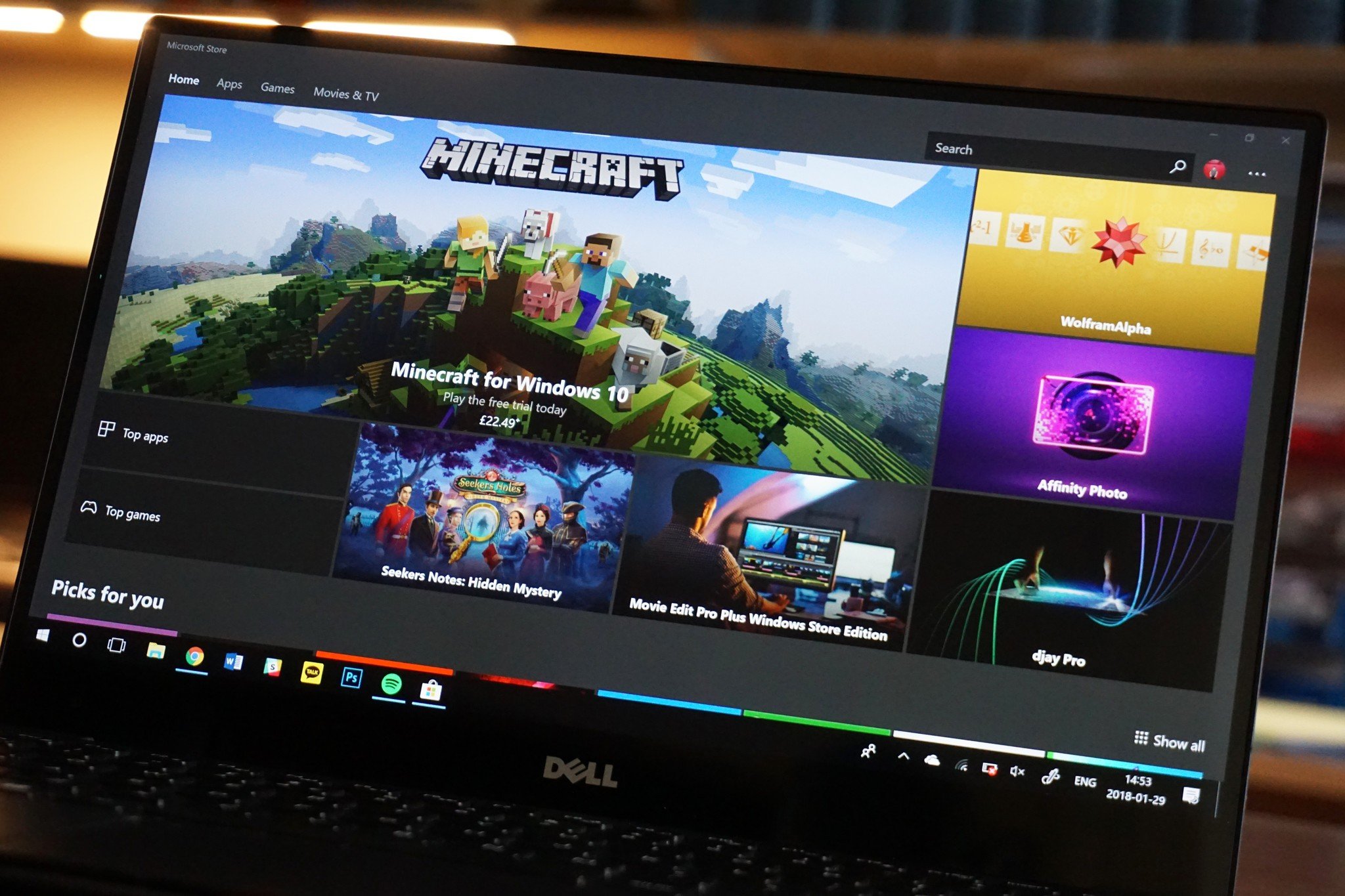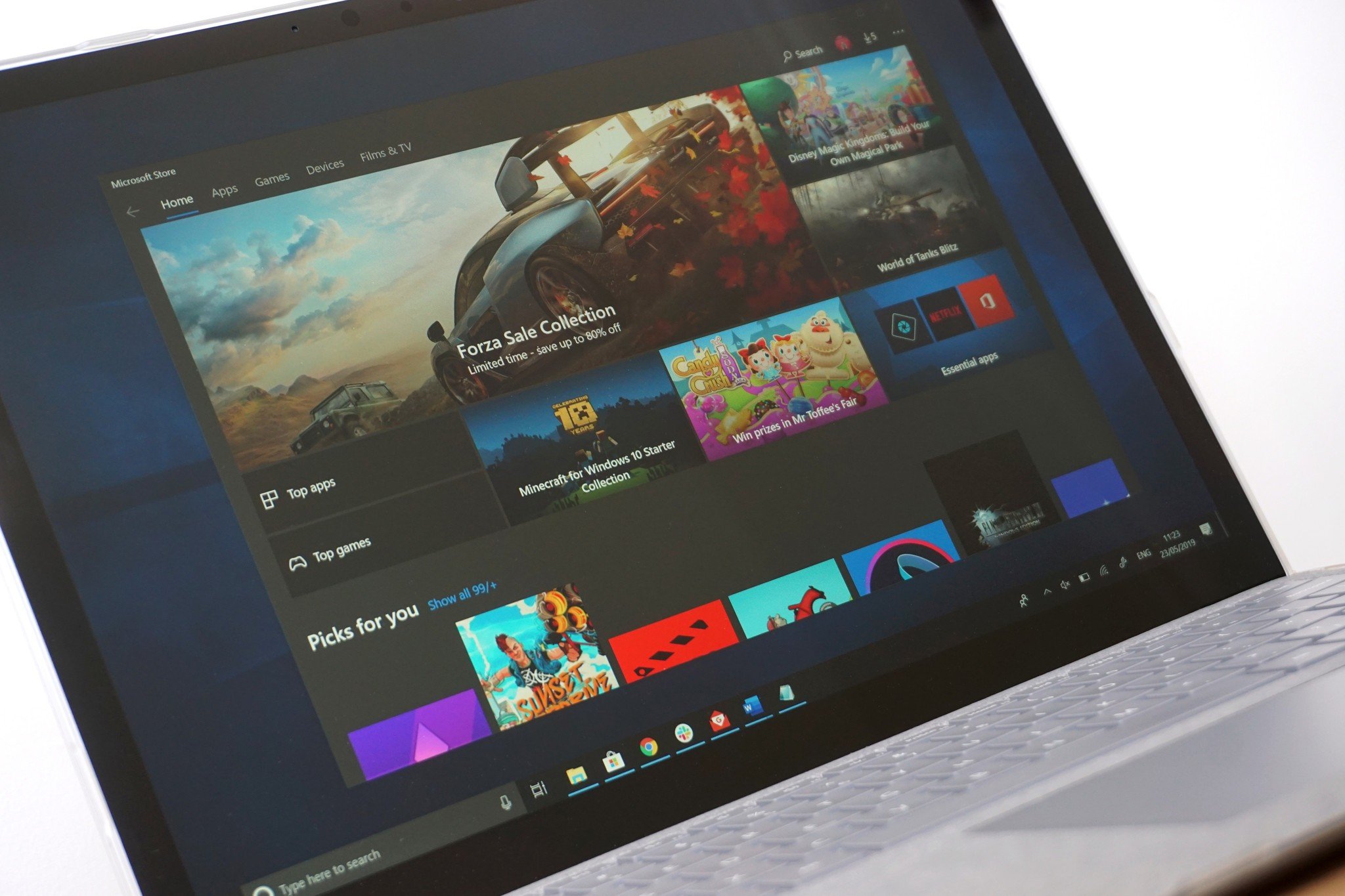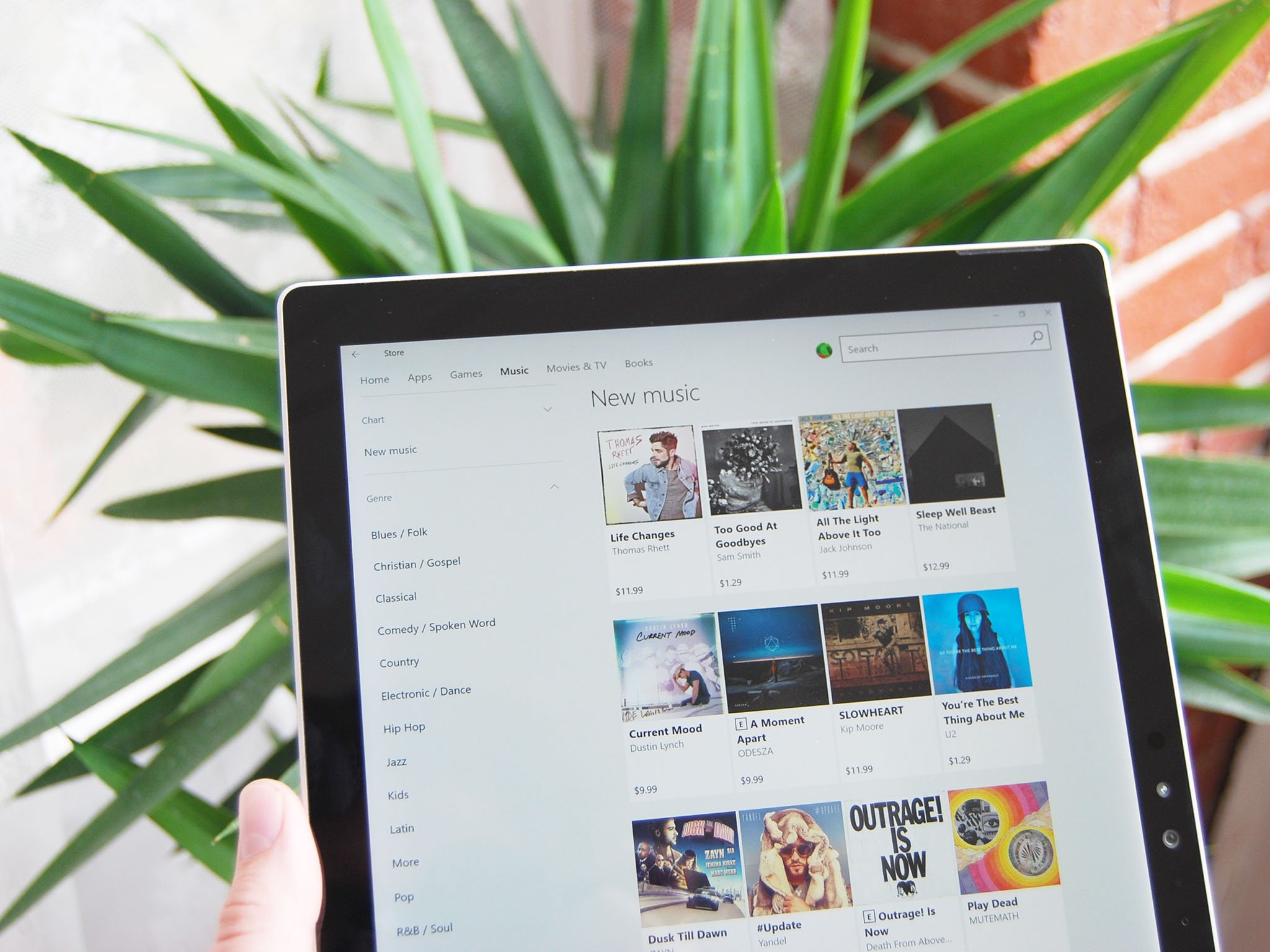Thinking about Microsoft's potential new app store on Windows 10
Windows is a desktop OS, so desktop apps should be in the Windows app store, right?

Last week, I wrote about some upcoming changes to the Store app on Windows 10 that Microsoft is yet to announce, that will allow app developers to bring more kinds of Win32 apps to the Store in an effort to revitalize the storefront for end-users. Windows is a desktop OS, and most users are using those desktop apps on a regular basis, so why shouldn't those apps be in the Store?
The changes that Microsoft will be putting into effect will allow developers to submit unpackaged Win32 apps into the Store, and Microsoft will allow those apps to use their own in-app commerce platforms and update systems, instead of Microsoft's own store framework. This is a big deal, as it allows commercial grade apps like Adobe's Creative Cloud, or popular apps like Firefox or Google Chrome to be added to the store with no additional work by the developers.
Okay, why?

But why is Microsoft doing this? These changes essentially go against the whole point of an App Store; being a place to find high-quality, trusted apps that have been vetted by Microsoft and updated by developers so that they can't cause bitrot. How is it beneficial to relax the policies that make that happen? Well, here's how:
Microsoft has the data, and they've found that most users who go into the app store are looking for a particular app, whether that be Office, Chrome, Zoom, you name it. For many big name apps on Windows, you won't find them in the store, because those developers haven't submitted their apps as the current policies don't allow them to run.
While developers of said apps could update their apps to make them store compliant, the reality of the situation is that most developers won't do that because users are more than happy to download their application from outside the store, maintaining said app developers built-in solutions for updates and in-app purchases. So it's actually beneficial for a lot of app developers to not submit their apps to the store.
Users are already happy to download unpackaged Win32 apps from the web.
Microsoft can see that users are heading to the Microsoft Store, searching for Chrome (for example) and not finding it, then closing the store app, opening their web browser, and downloading Chrome from there instead. The end-user isn't bothered about whether or not the app they're downloading has been correctly sandboxed or is going to use the Microsoft Store for automatic updates. They just want the app they went looking for.
Not finding the app in the store can lead to customer dissatisfaction. It looks bad on Microsoft's part, and Microsoft not allowing those apps in the store just makes it harder for customers to get the apps they want. Why should a user have to download Chrome from the web when it could very easily be found and installed via the built-in Windows app store? It should just be there.
Get the Windows Central Newsletter
All the latest news, reviews, and guides for Windows and Xbox diehards.
What about the disadvantages?

There are certainly disadvantages, especially around security. There's no guarantee that an app developer that does choose to use its own updating or content delivery system won't abuse that power by pushing down unwanted content or even malware, but how often does that happen today with users downloading apps from the web?
Users who open the store usually have the app they want to download already in mind. I don't think I've ever opened the store and browsed by new to find something I've never heard of. I'm in the Store to get an app I know about or have used before, and therefore trust. Developers submitting apps to the store, packaged or not, will still have to be approved.
And even then, I'm sure Microsoft will have other ways of ensuring security even after the app has been approved, but that's Microsoft's story to tell. There's also the whole "preventing bitrot" idea that falls apart by relaxing store policies. Again, I don't think this matters as most users are happy to download their apps unpackaged from the web every day. So that benefit is irrelevant for most people.
Also, it's possible that Microsoft is working on a way to sandbox unpackaged Win32 apps on Windows 10 like it already planned to do on Windows 10X. That way, even if an app causes bitrot or is able to pull down malware, it'll only ever be the sandboxed environment that it affects. But, we'll have to see if something like that ever comes to Windows desktop.
The opposite of what UWP promised

I know there are people that really wanted Microsoft to push developers to build UWP apps as replacements to Win32 programs, but that's just never going to happen. UWP has its place as another app type on Windows, and it certainly makes sense for specific app scenarios, but it doesn't make sense as the only app platform. Win32 is sticking around, and it hurts developers and end-users to try force everyone away from it.
Project Reunion is supposed to help blur the lines between Win32 and UWP anyway, marrying the app platform ecosystem on Windows under one umbrella. We'll see if that takes off, but for now, Win32, UWP, PWA, and everything in-between are welcome app types on Windows, with no plans to remove any of them going forward. They all have a purpose, and they'll always be available to download in the app store on Windows.
For now, I think the advantages of relaxing store policies outweighs the disadvantages for most users. Being able to find the most popular Windows apps in the Store will be a big deal for Microsoft and Windows, and tells users that the platform is still alive. Imagine opening the storefront and seeing Chrome, Zoom, Photoshop, YouTube, Teams, Visual Studio, Office, and whatever else you can think of that you use every day. It'll make Windows feel relevant again, and that's what Sun Valley is all about.
In the meantime, what are your thoughts on these upcoming changes? Let us know in the comments.

